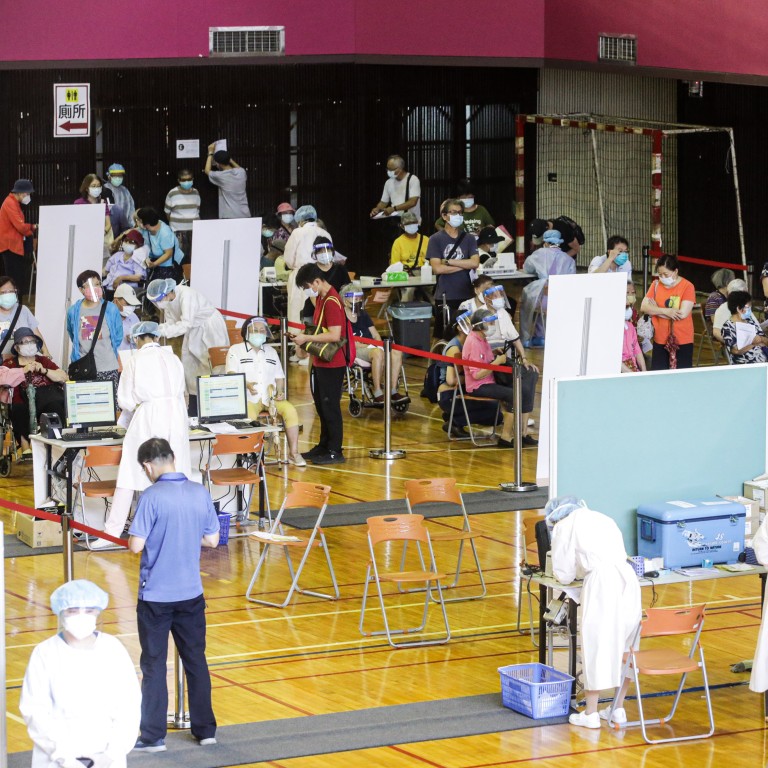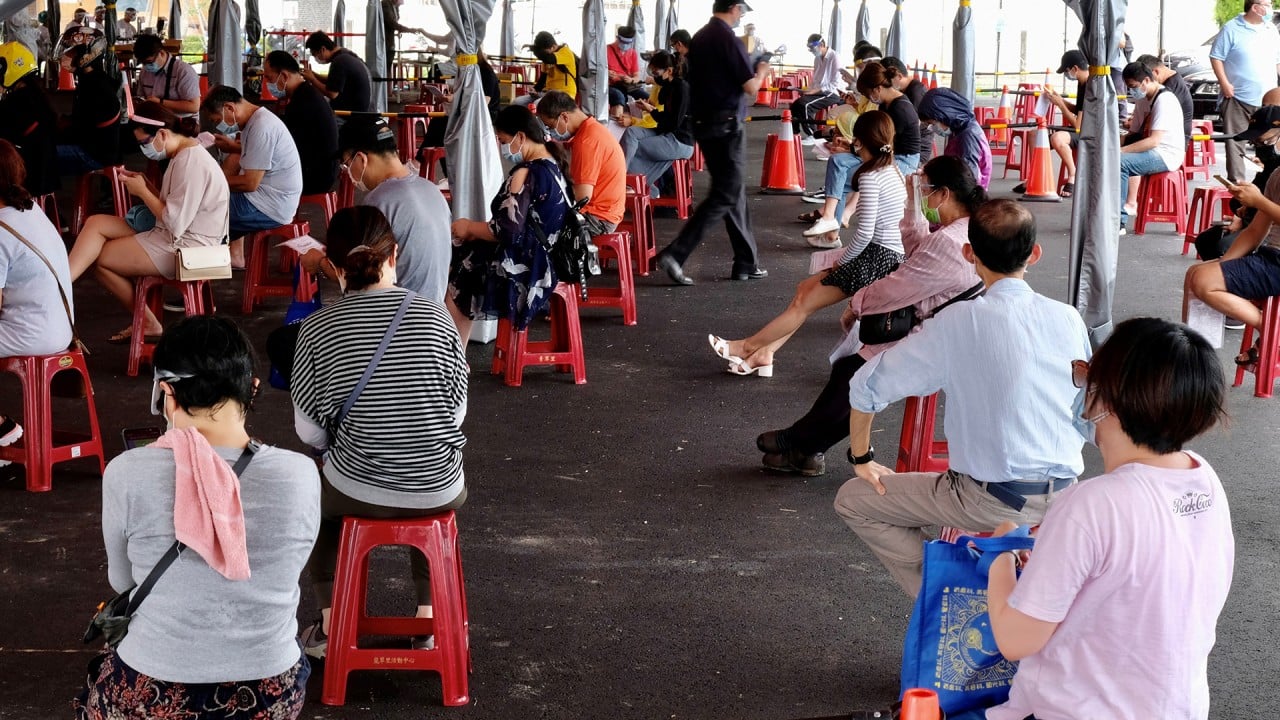
Taiwan’s spike in coronavirus cases may threaten ruling DPP’s chances in elections next year
- More than 13,000 infections and 510 deaths have been recorded since a jump in cases fuelled by new variant in late April
- Critics have faulted President Tsai Ing-wen’s administration for being too complacent after early success in shutting initial outbreak down
More than 13,000 people have been infected and 510 have died since a sudden surge of cases emerged in late April – months after the self-ruled island maintained an almost negligible number of cases and won global recognition as a successful model for keeping the pandemic at bay.
Local residents were disappointed that the Tsai government failed to take steps to prepare for the influx of any new variants of coronavirus – as it had previously vowed to do – but were particularly angry that vaccines and effective treatments were lacking to bring the soaring death toll down.
Critics, led by the opposition Kuomintang party and the Taiwan People’s Party, have faulted the Tsai administration for being too complacent and failing to learn from other countries about how to fight the outbreak when the island was still reporting a relatively small number of cases.
“The government had boasted that it had made advanced preparations for the outbreak, but what had it done over the past year? We do not have adequate Covid test capacity, nor do we have adequate medical facilities and vaccines to deal with the spread of the disease,” said KMT chairman Johnny Chiang.
Taiwan’s early shutdown of its border after the pandemic began had been cited as a major reason for its success in containing the initial outbreak. But critics said that a lapse in Taiwan’s border control measures resulted in some aircrews bringing in the alpha variant – which spreads faster among families and workplaces – and the disease has spread beyond control.
Former Taiwanese president Ma Ying-jeou urges government to allow groups to import Covid-19 vaccines
“Though manoeuvres by opposition political parties were behind the growing disgruntlement against the government, the ways the authorities deal with the outbreak and their vaccine purchase policy serve only to amplify the public jitters and their resentment of the Tsai administration,” said Arthur Zhin-sheng Wang, secretary general of the Asia-Pacific Elite Interchange Association, a Taipei-based think tank.
“This explains why there is a drop in the approval rating of President Tsai and her government,” Wang said, adding it would be unlikely her approval rating returns to the level she enjoyed when she was sworn in for a second term in May 2020.
According to an opinion survey by the Taiwanese Public Opinion Foundation late last month, the approval rating for Tsai had dropped below 50 per cent for the first time in her second term – plunging from 71.2 per cent in May 2020 to 45.7 per cent, the equivalent of losing the support of 5 million voters in just one year.

Another opinion poll by the local TVBS cable news network on June 10 showed that Tsai’s approval rating had dropped to 38 per cent from close to 70 per cent in May last year.
The same survey showed that 57 per cent of the respondents were dissatisfied with the Tsai government for not being able to acquire adequate vaccine doses to inoculate the island’s 23.5 million residents; less than 5 per cent of the population has had the shots.
Wang said while it remained to be seen if the recent wave of disapproval would affect the referendum, it has a long-term impact on local government elections next year.
Taiwan allows Foxconn boss Terry Gou and semiconductor giant TSMC to seek Covid-19 vaccines from BioNTech
“The outbreak, the power outage and the environmental disputes have already created a bearish sentiment towards the government. If the authorities fail to change the situation within the next six months, it would undermine the chances of the governing DPP in next year’s local government elections,” Wang said.
Wang Kung-yi, head of the Taiwan International Strategic Study Society, another Taipei think tank, said that the DPP government had been bragging too much about its success in controlling the pandemic last year. When it failed to contain the recent outbreak and was unable to supply enough shots for the public, he said, it inevitably drew disapproval.
But he believed that there was still time for the DPP to “employ its usual gimmick of stoking anti-China sentiment” to boost its electoral chances next year.
As for the 2024 presidential election, it is still too early to predict if the DPP will retain power, Wang Kung-yi said.
“But there are three factors that can be used to gauge the result of that poll – whether the DPP is able to continue to use its anti-China card to solicit voters’ support; whether the KMT or opposition groups have any charismatic [political] stars; and whether the DPP would have internal power struggles which could divide the party,” he said.


